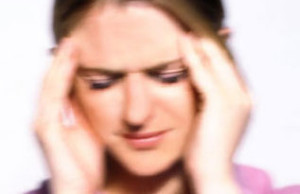Bipolar Disorder: Symptoms, Causes and Management
In this article, we will discuss a mental illness that is considered as the 5th leading cause of disability across the entire world. Also, it is regarded as a 9th leading cause of death in the whole world. The suicide rate of the patients suffering from bipolar disorder is 60 percent higher than the ordinary people. Bipolar disorder affects the mood of the person to extremes. This affects their school and job performance, interrupts day to day life activities and even damages their relationships.

Bipolar Disorder: Symptoms, Causes and Management
Bipolar disorder is severe mental illness tha can be treated if there is a complete knowledge about it so that we can get help in time. If treatment is delayed, this condition gets worse and may cause disability and death. Thus, it is very important to recognize the early signs of bipolar disorder and get treatment in time.
This article is intended to help you in this matter. Read it till the end, and we are sure you will find it very useful.
What is Bipolar Disorder
Bipolar disorder was earlier known as manic depression. This is a kind of mental illness that causes severe and extreme fluctuations in the mood, behaviours, energy and thinking of the patient. The variation shifts from extreme emotional mania (feeling very high and overactive) to the lower depressed state. The mood changes are not just ordinary, but intense and interfere the normal functioning of the individual. This bad mood and the excellent mood cycle of bipolar disorder continue to last for weeks or months. The frequency of mood shifts may vary from few times in one year to several times in just one week.

What is bipolar disorder
Bipolar disorder is relatively common it may affect anyone of any age group. However, it’s beginning is more common in the age group 15 to 25 years. This mental illness affects both males and females equally, but males may be affected by this brain disease at an early age as compared to females.
What are the Symptoms of Bipolar Disorder
The sign and the symptoms of bipolar disorder depend on its type, severity, pattern, and the frequency of the disease. The symptoms vary according to whether the patient is going through the manic episode or the depression episode. To be diagnosed with bipolar disorder, it is essential that the patient should be diagnosed with at least one manic episode or hypomania. The depressive episodes usually alternate with manic episodes.
Patients with bipolar disorder either may be more prone to depression or mania, or both the episodes alternate equally. However, it is not necessary that the depressed and manic states of this brain disease are always distinct in every patient. There can also be episodes of mixed experiences where both the episodes occur in rapid sequence or simultaneously.
Let us Discuss the Symptoms in Both the Episodes Separately:
Mania-
During the manic episode, the feeling of the patient is heightened. Their level of activity, and creativity increases. Their thoughts and ideas are racing. The patient is filled with ambitious ideas or plans and is very happy. You will find such patients sleeping very little, eating decidedly less but still filled with energy.

Mania
Bipolar Depression
The patients suffering from bipolar depression can’t be helped with anti-depressants as they may worsen their condition. Anti-depressants may trigger hypomania or mania and may also interfere with other mood stabilising drugs.

Bipolar depression
Common symptoms of bipolar depression are feeling hopeless, sad, irritable, emptiness, tiredness, mental and physical sluggishness, loss of energy, sleeping problems, poor concentration, changes in appetite, marked weight gain or weight loss, feeling of worthlessness guilt and lack of focus. There is reduced interest in everything, and the person finds that there is no pleasure in their life. These symptoms may get so severe and noticeable that they interfere with day to day activities and affects the performance of the patient.
Hypomanic Episode-
Although hypomanic is a less severe form of mania, it also makes a person feel energetic, euphoric and productive. But despite these symptoms, the person can carry on their daily activities and also they do not lose their touch with the reality
Mixed Episode-
This is a condition where the symptoms of depression and mania or hypomanic are featured together
What are the Causes of Bipolar Disorder
The exact cause of the bipolar disease has not been discovered. However, specific factors are considered responsible for this mental illness such as heredity, stress, head injury, drug abuse and specific medication.
What is the Treatment of Bipolar Disorder
If diagnosed in time bipolar disorder disease can be treated with certain medications, psychotherapy, and self-help. The main aim of the procedure is to reduce the frequency and severity of the episodes. This will provide the patient productive and healthy life.

What is the treatment of bipolar disorder
Medications-
the most common drug given to treat the symptoms of bipolar disorder is lithium carbonate. Other medicines give anticonvulsants and antipsychotics.
To help the patient recognise his/her symptoms and help them avoid triggers and minimise disability psychotherapy is given.
Cognitive Behavioural Therapy is also given and is Found Useful.
Besides the above treatment self-help is very important. Recognize your symptoms by learning more about bipolar disorder. Avoid stress and try to lower the pressure using techniques such as yoga, meditation, and deep breathing. You may also take help and support of the family member or friend you trust and can share your problem. Besides this maintain a healthy sleep, exercise and diet routine.















































